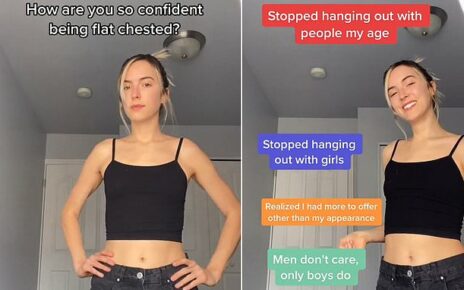While the market for foreign-language cinema has shrank, the packed opening of the Rendez-Vous with French cinema in New York hosted by Film at Lincoln Center and Unifrance on March 1 underscored American audiences’ enduring love for Gallic fare. At least when it comes to New Yorkers.
Some of France’s brightest writers/filmmakers, including Alice Winocour (“Paris Memories”), Rebecca Zlotowski (“Other People’s Children”), Sebastien Marnier (“The Origin of Evil”) and Cesar-winning star Virginie Efira and famous actor Melvil Poupaud traveled to New York with Unifrance, the French film promotion org. On top of presenting their movies, some talents on the ground took part in masterclasses at Film at Lincoln Center, Columbia University and Brooklyn College, as well as a creative workshop with emerging filmmakers participating in the Gotham Marcie Bloom Fellowship in Film.
Recruiting younger moviegoers has been one of Unifrance’s primary missions in recent years. The pandemic has made this mandate even more crucial as traditional foreign-language audiences have not yet fully returned to theaters.
During his masterclass with film students at Brooklyn College, Marnier discussed French classics’ influences, notably movies by Claude Chabrol, behind his thriller “The Origin of Evil.”
Marnier gave “Call My Agent!” star Laure Calamy her darker and most subversive role to date as Stephane (which was the name of Chabrol’s wife), a working class woman who reconnects with her estranged father who has become incredibly wealthy. The movie, set for a March 17 U.S. release courtesy of IFC Films, is also a social critique punctuated by grotesque humor, and a high-drama queer romance.
Sitting alongside his producer Caroline Bonmarchand, Marnier said “The Origin of Evil” might be part of a new breed of genre films.
“For decades, French genre films were inspired by American horror movies so we didn’t bring anything new to the table, especially because we’ve never had the same ressources as U.S. productions, but today we’ve found our own voice and we’re able to make genre films that have social and political resonances,” said Marnier, who also cited Just Philippot’s horror thriller “The Swarm” as another kind of elevated genre cinema with a social subtext.
Besides “The Origin of Evil,” the other genre title that played well at the Rendez-Vous on its opening weekend was “La gravité,” a low-fi action drama set in a futuristic Parisian suburb with a nearly all-Black cast. “La gravité” will be released in the U.S. by Dark Star Pictures.
“Almost all of the screenings at the Rendez-Vous were sold out and that was reassuring, and then we noticed that while some older fans were still there, the public was younger,” says Daniela Elstner, managing director of Unifrance. She argues that even if audiences have evolved, “French cinema is like a brand” which continues to be appealing for different reasons. Older audiences tend to be loyal to renowned French auteurs, but this new demo is lured by original storytelling, says Elstner, citing Marnier, Audrey Diwan (“Happening”), Julia Ducournau (“Titane”), among others.
The executive noted that aside from these, the work of French New Wave icons like Agnes Varda, Jean-Luc Godard and Francois Truffaut is also enjoying a new popularity as illustrated by the well-attended retrospectives hosted at the Film at Lincoln Center.
Ira Deutchman, a producer, distributor and Colombia University professor, who hosted a workshop for French sales agents and U.S. distributors during the Rendez-Vous, shares Elstner’s perspective.
“Younger audiences are coming for different films than it used to be the case (…) and they’re clearly interested in expanding their horizons beyond the big commercial films,” says Deutchman, whose workshop gathered executives from Sony Pictures Classics (“One Fine Morning”), Neon (“Saint Omer”) and Sideshow (“EO”), while others from Music Box Films (“Paris Memories,” “Other People’s Children”), IFC Films (“The Origin of Evil”) and Kino Lorber (“The Sitting Duck”) attended other events.
“Everybody’s talking about elevated genre films and that’s what the younger generation is interested in, and you can find those movies that are unique within those genres,” Deutchman continued. He says, however, that the old version of the art film business – one that relied mostly on reviews and print advertising — is broken.
In spite of the challenges brought by the pandemic, there are still between 60 and 70 French films released domestically on average every year, according to Adeline Monzier, the U.S.-based representative of Unifrance. She noted, however, while French movies as a whole sold more theatrical admissions in North America in 2022 compared with 2021, each French film had a smaller box office than previously. She argues, nevertheless, that the dip in ticket sales also concerns other movies, even American titles.
Festivals play a key role in building some buzz around French movies, but it’s not enough, which is why Unifrance is spearheading more grassroots and digital initiatives connecting filmmakers and talents directly with their audiences. This edition of the New York Rendez-Vous saw French talents more engaged in promotional activities – panels, interviews, videos and red carpets — than they’ve ever been.
Richard Lorber, whose banner Kino Lorber recently acquired Jean-Paul Salomé’s gripping true life thriller “The Sitting Duck” starring Isabelle Huppert, is optimistic about the prospects for French movies in the U.S.
“The French have a most robust film industry with critical mass of output stirring a churn of talent,” says Lorber, citing the presence of “young upstarts and seasoned auteurs shoulder to shoulder.” The veteran distributor says their ability to create “new cinematic ideas flourish” because they’re “free of commercial constraints as in U.S.”
Read More About:
Source: Read Full Article

